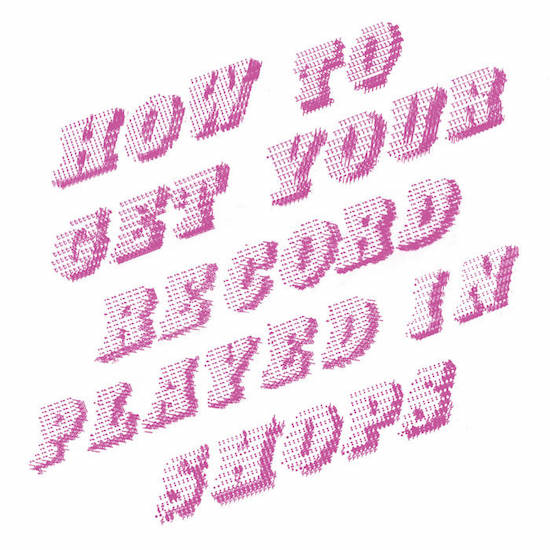In 2013, Mike Donovan brought the curtain down on the much-loved Sic Alps after nine years, four albums and a plethora of EPs. Among the reasons Donovan cited for the split was that he was the only member of the band’s rotating line-up that still resided in San Francisco, the city that spawned and nurtured them. That Donovan kept the band going as long as he did as musicians came and went, at the mercy of the San Francisco employment market and spiralling cost of living, is testament to his defiance and refusal to err from his own vision. And this defiance has always been an inherent part of his rickety, unkempt, iconoclastic garage rock.
Not long after Sic Alps’ dissolution, Donovan formed The Peacers, who have now released two intoxicating albums of scratchy, lo-fi, glorious guitar-based rawness, and from the clunkily picked-out piano, organ and guitar notes of opener ‘Great Unknowing’, it is obvious that How To Get Your Record Played In Shops is in a similar vein to the rest of Donovan’s extensive catalogue.
But not too similar. While the songs remain sketch-like, occasionally half-written and performed with that recognisable charming sloppiness, this is less gnarly garage-psych and more misanthropic bedroom genius.
Donovan has turned to an echoey piano sound to achieve this more low-key aesthetic, which on ‘Sadfinger’ and ‘Sugar Shaker’ takes on a distinctly bluesy and slightly miserable mood, putting me in mind of Todd Rundgren’s morose-but-witty meditation on self-examination, ‘I Went To The Mirror’.
In terms of attitude and lyrics, Rundgren is an interesting touchstone generally: you can well imagine him releasing a record called How To Get Your Record Played In Shops. Like Rundgren, Donovan’s sense of humour throughout is occasionally absurdist and plays with the humdrum and everyday, and borders on cynicism without ever becoming weighed down by it.
Elsewhere, it’s impossible not to detect the strong influence of perennial Donovan favourite Syd Barrett (and Barrett disciple Robyn Hitchcock) in the slow-moving weirdness of ‘Rosemarie’, which even goes so far as to be imbued with a kind of Englishness in its vocals and the strange whimsy of its childlike, cobbled-together noises. This dissonance is also a feature of louder tracks ‘3 Track Seizure’ and the particularly good ‘Top Shop’, one song that in its grunge-simple acoustic guitar chords and especially murky production could easily have been on a Sic Alps or Peacers record.
Otherwise, the spryness that Donovan’s songs receive in an ensemble setting is lacking throughout How To Get Your Record Played In Shops – no bad thing, as this more sombre approach has been matched with beguiling sonic experimentation (within Donovan’s lo-fi limits, of course) that takes the record decisively away from run-of-the-mill singer-songwriter territory.
The distinctions between Donovan’s multiple projects are subtle, but they are there, even if all his music is enshrouded in the fug of unsophisticated recording and arrangements. This is not as viscerally thrilling as many of his other releases; it is warm, it is something to quietly contemplate.


